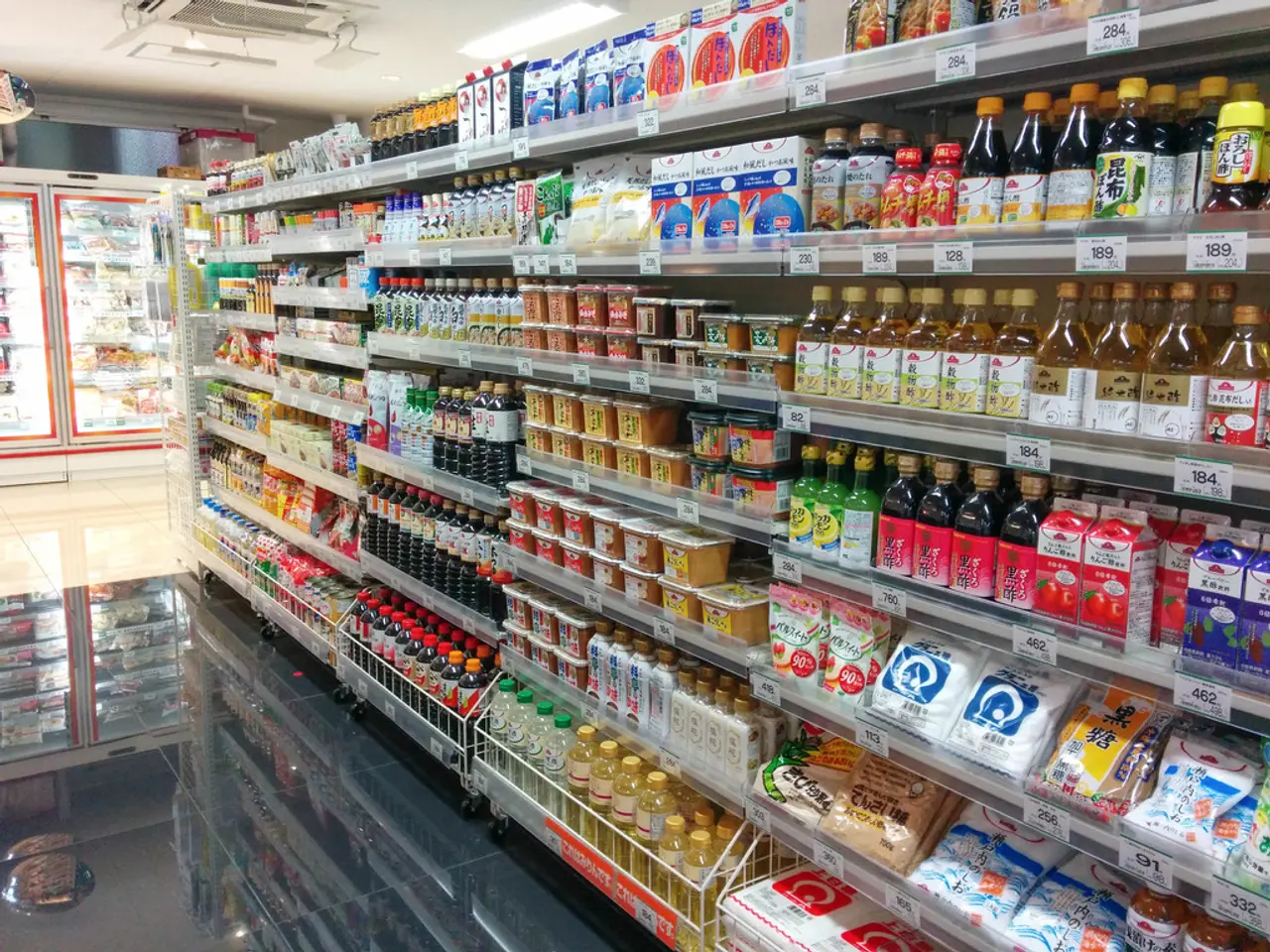Financial sector challenges Trump's assertive stance
In the ongoing saga of US trade tariff negotiations, President Trump has extended the deadline for some reciprocal tariffs until August 1, affecting countries such as the Democratic Republic of Congo, Equatorial Guinea, and the European Union. This news, while causing a ripple in global markets, has been met with a sense of cautious optimism.
Tony Sycamore, a market analyst at IG Australia, described the latest tariff news as an "aftershock," while Mohit Kumar, chief strategist and economist for Europe at Jefferies, labelled it a "speed bump" rather than a threat to derail the momentum in stocks. Sarah Bianchi, senior managing director at Evercore ISI, stated that Trump is "feeling good about recent victories" and is more likely to lean into imposing his tariff agenda with stocks near record highs.
The US stock markets on Tuesday showed mixed results, with the Dow Jones Industrial Average falling 0.37%, the S&P 500 falling 0.07%, and the Nasdaq Composite gaining 0.03%. This volatility reflects the uncertainty surrounding potential new tariffs and their impact on corporate earnings and global supply chains.
Investors have been betting on Trump backing down from major tariff threats, a strategy known as the "TACO trade." However, the ongoing negotiations and tariff extensions have kept this strategy under scrutiny. Analysts at Barclays warn that it remains prudent to consider all possible scenarios, given the narrative around tariffs remains quite fluid and Trump maintains a "do whatever we want" position.
Looking ahead, inflation data for June will provide more insight into the economic impact of tariffs. Meanwhile, Trump has sent letters to 14 countries outlining proposed tariff rates, but investors are still waiting for announcements about potential deals or tariff letters for other trading partners like India, Taiwan, and the European Union.
Investors perceive Trump's new tariffs as more negotiating tactics than firm policy. This perception, coupled with the S&P 500 notching four record highs since June 27, has led Wall Street heavyweights to expect a push to higher levels. Bank of America has raised its year-end forecast for the S&P 500 to 6,300 from 5,600, while Goldman Sachs has raised its year-end forecast to 6,600.
However, the tariff situation continues to cast a shadow over global markets. Copper prices surged to record highs on Tuesday after Trump announced plans for a 50% tariff on imports of the red metal. The ongoing uncertainty has led analysts at Barclays to suggest that markets are beginning to "turn the page" on tariffs to focus more on how artificial intelligence is impacting corporate earnings and how economic data continues to hold up.
As the August 1 deadline approaches, the world waits to see how the tariff negotiations will unfold and what impact they will have on global markets. CNN's Marc Stewart contributed reporting.
- Given the cautious optimism surrounding the extension of tariff deadlines, market analysts have labeled the latest tariff news as an "aftershock" or a "speed bump" rather than a significant threat to the momentum in stocks.
- The ongoing tariff negotiations and extensions have kept the "TACO trade" strategy under scrutiny, with analysts at Barclays recommending investors to consider all possible scenarios, given the fluid narrative around tariffs and Trump's "do whatever we want" position.
- Despite the tariff situation casting a shadow over global markets, Wall Street heavyweights expect a push to higher levels, with the S&P 500 notching four record highs since June 27 and year-end forecasts being raised by both Bank of America and Goldman Sachs.




